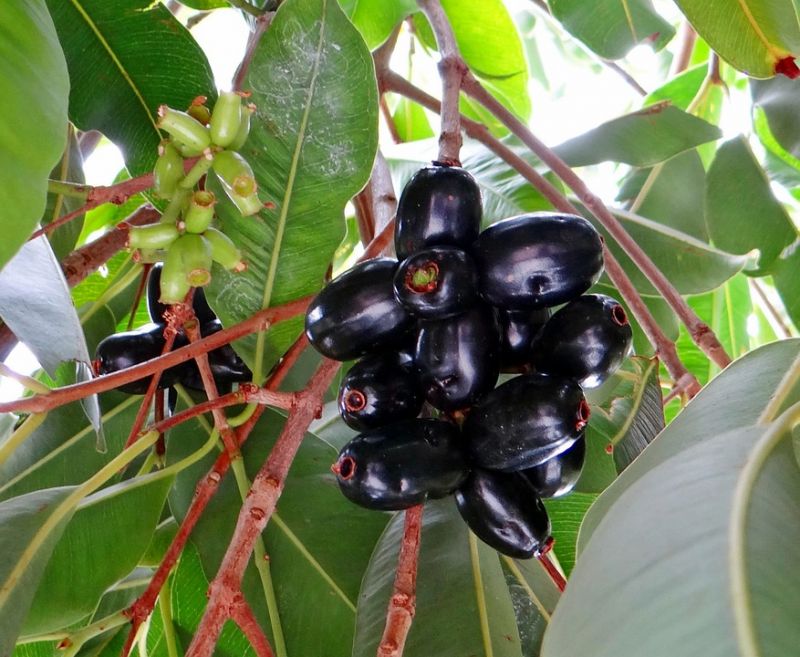IIT Hyderabad Uses Activated Jamun to Remove Fluoride from Water
Published on by Water Network Research, Official research team of The Water Network in Technology
Researchers at the Indian Institute of Technology (IIT) Hyderabad have used activated jamun seed powder to bring the fluoride content in drinking water to less than the WHO limit of 1.5 mg per litre.
The activated jamun powder can be reused up to five times by heating it to 50 degree C.
Now, while removing excess fluoride from drinking water, the usual problems such as high operational costs and getting rid of toxic sludge will be a thing of the past.

Activated jamun powder was able to reduce the fluoride content of Nalgonda
groundwater from 3.2 ml per litre to 1.5 ml per litre .
Source: Pixabay
Researchers at the Indian Institute of Technology (IIT) Hyderabad have used activated jamun seed powder to bring the fluoride content in drinking water to less than the WHO limit of 1.5 mg per litre. The results were published in the Journal of Environmental Chemical Engineering.
The team led by Dr. Chandra S. Sharma from the Department of Chemical Engineering at IIT Hyderabad mixed the jamun seed powder thoroughly with potassium hydroxide and heated it to 900 degree C for an hour to produce activated jamun powder.
The activation increases the pore volume several times and the surface area by more than 50 times. As a result, the fluoride adsorption efficiency increased several times compared to samples that were not treated with KOH but heated to 900 degree C.
The fluoride ion removal increases with a decrease in pH, with maximum adsorption found at pH 3. The activated jamun seed acquires a positive charge at low pH and the positive charge attracts the fluoride ions while the negative charge in an alkaline medium repulses the fluoride ions.
With fluoride adsorption capacity of 3.65 milligram per gram, activated jamun seed was close to tea ash (3.75 milligram per gram) but much higher than other substances such as banana peel, coffee husk, and coconut shell.
“Besides testing the activated jamun seed powder in the lab we also tested it using groundwater taken from Nalgonda village, which is one of the worst fluoride-affected villages in India. After two hours of contact time, we were able to reduce the fluoride content from 3.2 milligram per litre to less than 1.5 milligram per litre, which is the WHO limit,” says Dr. Sharma.
On heating the activated jamun powder to 50 degree C, the fluoride gets desorbed and the jamun powder can be reused up to five times. “About 96% of the fluoride can be desorbed. So there is a loss of only 4% efficiency after each desorption,” he says.
Read full article: The Hindu
Media
Taxonomy
- Flouride
- Drinking Water Security
- Treatment
- Treatment Methods
- Drinking Water Treatment
- Drinking Water Managment
- Drinking Water
- India